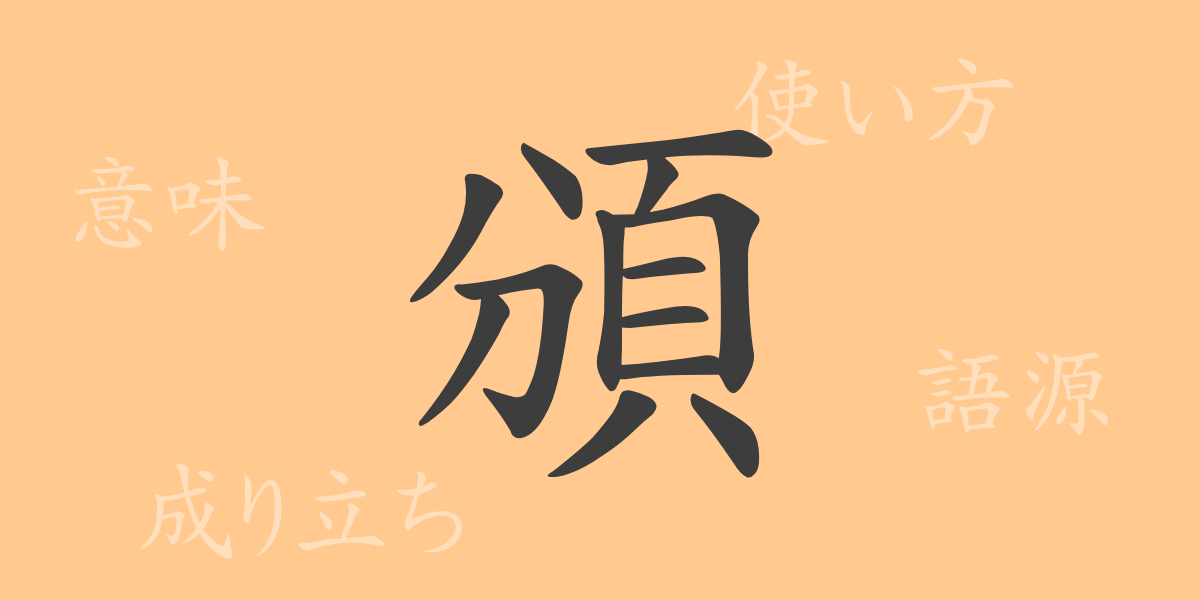In the Japanese language, delving into the profound meanings that a single kanji character holds can provide insights into the language’s background and culture. This time, we focus on the 常用漢字(Jouyou Kanji) “頒”(Han), unraveling its origins and contemporary usage. Let’s explore how this unique character is utilized in various expressions rooted in our daily lives.
Origin of 頒 (Han)
The kanji “頒”(Han) is a character that originated in ancient China, formed by combining “分”(Bun), meaning “to divide,” and “頁”(Kashira), meaning “head.” “分”(Bun) indicates the action of dividing, while “頁”(Kashira) is a pictograph originally representing a human face. Together, they depict the act of distributing from a superior to a subordinate. Thus, “頒”(Han) came to mean “to give” or “to distribute.”
Meaning and Usage of 頒 (Han)
The kanji “頒”(Han) means “to distribute” or “to give out.” Specifically, it is used in contexts where something is distributed equally among many people or where awards are given. It also carries connotations of fairness in the distribution of power or resources, making it applicable in political and economic contexts.
Reading, Stroke Count, and Radical of 頒 (Han)
Here is some basic information about the kanji “頒”(Han):
- Reading: The on’yomi (音読み) is “Han.” There is no kun’yomi (訓読み).
- Stroke Count: It has a total of 12 strokes.
- Radical: The radical is おおがい(Kashira・頁).
Compounds, Idioms, and Proverbs Using 頒 (Han)
There are numerous compounds and idioms that include “頒”(Han). Here are a few examples:
- 頒布 (Hanpu): Distributing books or pamphlets to many people.
- 頒給 (Hankyuu): Awarding prizes or rewards.
- 頒与 (Hanyo): Bestowing honors or awards.
These compounds are used in the context of broadly distributing something or awarding specific individuals.
Summary of 頒 (Han)
The kanji “頒”(Han) strongly reflects the concept of distribution through its form and origin. In Japanese, it is primarily used to mean fair distribution or the awarding of prizes, and can be seen in various contexts. Understanding the meaning embedded in this single character allows us to achieve richer communication through language.

























